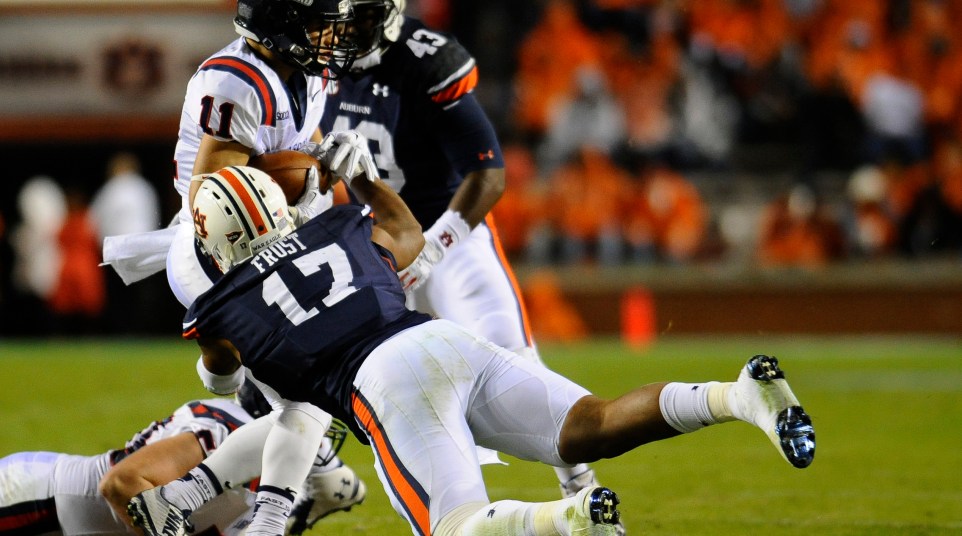How did Auburn fare on its checklist of improvements against Samford?
There were a litany of things Auburn head coach Gus Malzahn and his team were looking to improve on against Samford on Saturday night.
Instead of an easy blowout, the Tigers needed 17 second quarter points to take a 10-point lead to the break. The 31-7 final was hardly an indication of how Auburn played.
How did the Tigers fare on improving the array of concerns they had after back-to-back losses?
Pass Rush
Auburn’s defensive front did a nice job pressuring Samford quarterback Michael Eubank, but couldn’t translate that into sacks. The Tigers registered 21 quarterback hurries, but only recorded two sacks.
The defense struggled through the first quarter and a half, with Samford gaining 139 yards of total offense and scoring its only touchdown of the game. The rest of the way, however, the Bulldogs amassed just 99 total yards and averaged 2.4 yards per play.
Elijah Daniel had a solid night coming off the edge in place of the injured DaVonte Lambert, notching 6 quarterback hurries, one sack and one tackle for loss. Defensive tackle Montravius Adams spent a lot of his time in the backfield, recording three quarterback hurries and two tackles for loss.
All in all, it was a step in the right direction for Auburn on its defensive front. The Tigers have to convert hurries into sacks when they pressure the quarterback. Allowing mobile quarterbacks — of which Eubank and this week’s opponent, Blake Sims, are — to escape pressure and make plays with their legs has killed Ellis Johnson’s defense. When it has a chance to record a sack and put the opposing offense behind the chains, Auburn must convert.
Slow Starts
This was a problem again on Saturday night against Samford. Auburn looked lifeless for the first quarter and a half, being held scoreless in the first quarter by (no offense to Samford) a FCS defense. The offense looked out-of-sync, the defense couldn’t stop the Bulldogs on their first four drives of the game and even special teams got off to a bad start with Jimmy Hutchinson shanking the Tigers’ first punt of the game and Quan Bray fumbling a punt return.
This habit of slow starts has burned Auburn of late. In four of their last six games, the Tigers have held first-quarter deficits. That’s not the formula for success for a team with an average defense and an offense that needs time to get in rhythm. It’s especially not a formula for success against the nation’s top-ranked team at their place.
Penalties
This is, perhaps, the most frustrating — and perplexing — problem for this Auburn team. In their first seven games combined, the Tigers were flagged just 40 times. In the last four games alone, Auburn has been penalized 36 times. That’s an average of nine per game.
Saturday night’s win over Samford did in fact mark the fourth consecutive game with at least seven penalties, as the Tigers were called for eight.
The defense was called for five of those eight penalties, again giving opposing offenses extra yardage and a chance to stay on the field in a situation in which a drive would’ve stalled.
Malzahn has said repeatedly that correcting this issue that has plagued the Tigers for the last six weeks begins with him, but we’ve seen no semblance of more disciplined play.
Could it be the grueling schedule the Tigers have had to play through? Could it be some of the off-the-field issues that have served as distractions this season?
Either way, Auburn has to play mistake-free football next week in Tuscaloosa if it has any hopes of knocking off No. 1 Alabama, and cutting down on penalties are a large part of that.

